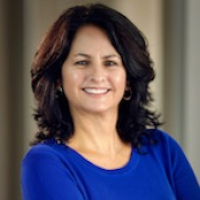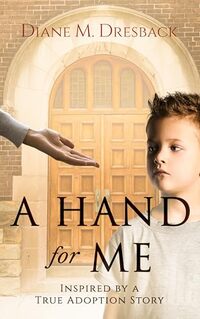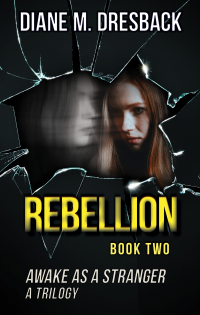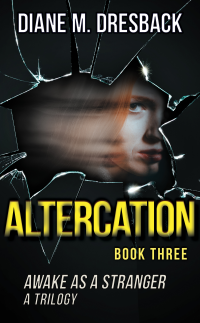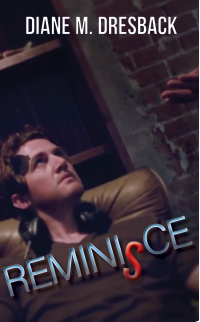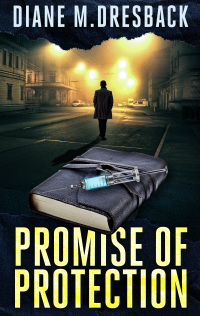Diane M. Dresback Interview Published on: 04, Mar 2024
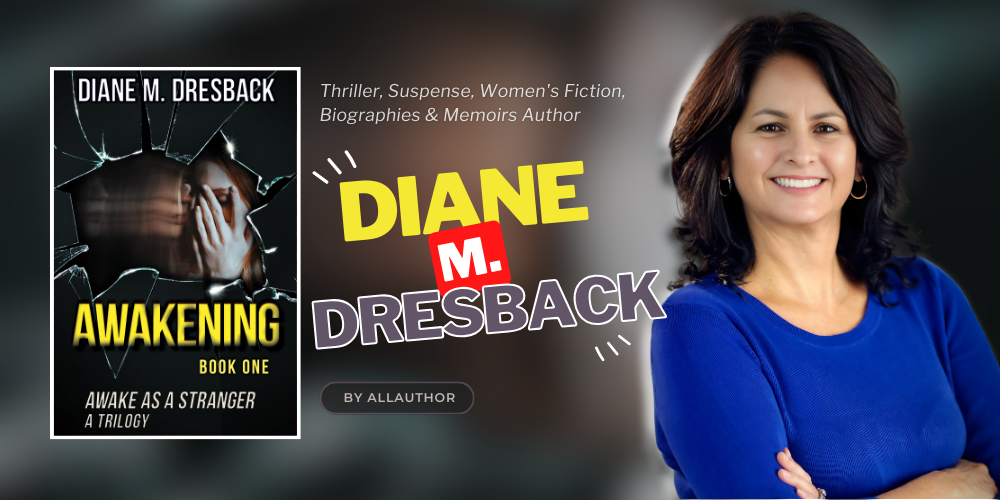 Can you share a bit about your journey into the world of storytelling, and what inspired you to become an author, screenwriter, and director?
Can you share a bit about your journey into the world of storytelling, and what inspired you to become an author, screenwriter, and director?
I loved creative writing all through high school and was excited to take my first writing course as a freshman in college. Unfortunately, by the end of that class, the professor told me not to waste my time, and being naive, I believed him. I finally shook off my doubt and rediscovered my love of storytelling in 2002 when a personal situation prompted me to try my hand at writing a feature-length screenplay. After that came many short and feature scripts. In 2014, I branched out with a blog and wrote my first novel based on a film idea.
Your passion for storytelling is evident in your diverse roles as an author, screenwriter, and director. How do these different mediums complement each other in your creative process?It’s truly all about telling a good story, but in different ways. My first four novels all came from film concepts that I had created. Turning those into books allowed me to fully understand my characters and of course, you can describe so much more in the writing. Now I have adapted those novels back into much-improved screenplays.
Do you have a favorite genre or theme that you find yourself particularly drawn to in your writing and filmmaking?My books generally fall into the medical or psychological thriller or mystery categories with most carrying a sci-fi thread. I write fast-paced and more on the clean side, but definitely not cozy style. The language is mild and you won’t find explicit sex scenes, but there can be violence if it serves the story.
As far as theme goes, a close friend once pointed out to me that I tended to present characters who either need to forgive someone else or forgive themselves. When I examine my writing so far, that does seem to be reflected.
What draws you to a particular story or idea when deciding to turn it into a book or a film?I have to connect with the overall idea. Also, compelling characters are critical as they really can make or break the story. Oh, and I like twists and surprises—if I can get them in there!
As a past recipient of the Arizona Filmmaker of the Year Award, how has the recognition influenced your approach to filmmaking and storytelling?I am so humbled to have received that award and I continue striving to improve in both my writing and my filmmaking. It’s also a constant reminder to be grateful for the collaboration with other creative and talented people.
Could you walk us through your typical creative process, from the initial idea to the finished product, whether it's a book or a film?Everything begins with a simple question that often comes out of the blue. For example: What might happen if we could re-experience a memory utilizing all of our senses? What if we could cryo-suspend a newborn baby until the time was better to bring them home? What if I woke up in someone else’s body?
Once that primary idea is identified, then I start brainstorming. Being a filmmaker first, I visualize scenes in my head. This also leads to the pacing of my stories moving quickly.
Then the messy process of assembling my outline gets underway. I’m a big-time plotter. You should see my spreadsheets! I log characters, story timeline, major chapter happenings, special language or terminology, etc. However, everything remains in flux and subject to change.
I often write scenes or chapters out of order for both a script and a book. I place random notations and research inside the manuscript or screenplay not worrying about formatting or even complete sentences. Sometimes it’s just a spewing of dialogue as I envision a conversation could go between characters.
Next, I write the first full draft making adjustments to the outline as I go. That is followed up by the typical refining, editing, getting feedback, rewriting, and so on.
How has your background and experiences influenced the stories you choose to tell?I had a whole different career as a Human Resources professional for two financial institutions and an airline. You meet and interact with a dizzying array of personalities and issues. I think this helps me in my character development making them more real.
In your opinion, what makes a great story, whether it's for a book or a film?Engaging characters, an original storyline, and good pacing. If I pull out my laptop to “do a few things” while watching a movie at home or if I skip ahead on an audiobook or skim pages in a novel…it’s because one or more of these pieces are missing for me.
As a storyteller, how do you balance staying true to your creative vision while also considering the expectations and preferences of your audience?Yes, this is an intriguing question. I know many authors or screenwriters will write for a particular audience and/or follow a tight formula. I write stories that I want to write. The ones that speak to me. It drives my husband crazy (he handles my book marketing) when I cross genres! But, I like stories to be unique and original, not just like the last five books that someone has read.
How do you handle challenges and creative blocks during the writing or filmmaking process?When stuck, I put my headphones on, play appropriate lyric-free music, set an intention, and go for a walk. My intention might be, by the time I get back, I will have figured out a character’s backstory, how a scene might look, or how to tackle a solo issue.
The idea is to completely focus on just one thing. Using my phone’s voice memo app, I record my rambling thoughts during the stroll or as soon as I return home. Then everything gets transcribed and incorporated into the outline or story.
What role do you think storytelling plays in shaping culture and society?An important role. Reading outside of our preferred comfort zone introduces us to new possibilities and alternative situations. It does not mean that we must become full-fledged converts, yet it can expand our thinking to consider different mindsets and outlooks. I think if more people did this, we could begin understanding and respecting each other as human beings and not simply draw inaccurate conclusions because we don’t bother to educate ourselves.
I wrote my trilogy, Awake As A Stranger, to incorporate the idea of assumptions. In this story, one of the main characters awakens living inside a stranger's body. She literally is walking in another person’s shoes. What a poignant lesson.
Are there any authors, directors, or filmmakers who have had a significant impact on your work? If so, how have they influenced your creative style?There are many film directors that I respect, but I have to say that Christopher Nolan, as both a writer and director, has made many movies that I love. His cerebral approach to his characters and his storylines are amazing, not to mention his visual storytelling talents.
In novel writing, again there are many and I don’t only stick with one genre or author. I like trying new writers as that keeps things fresh. I’m always learning from and appreciating styles as I read. Some of my favorites are Harlan Coben, Freida McFadden, Tess Gerritsen, and Wendy Walker.
How do you approach character development in your writing?Most of my characters have personality traits witnessed in people that I’ve encountered in various environments over my life. It’s not that they are exactly that person, unless it’s meant to be that way like in my novel about my biological and adoptive parents, but just certain characteristics, physical attributes, or ways of speaking. This helps me remember and stay true to my characters and their interactions.
Can you share any upcoming projects or ideas that you're particularly excited about?On the book front, I’m in the throws of a first draft for book number ten. My writing style remains consistent (character-centric, fast-paced) but the circumstances that I put them in and the obstacles they must overcome are not always predictable. This story takes place in 2052 and is about a 62-year-old woman who visits her daughter who commands a space city where they create 3D-printed hearts. So there is a science fiction and medical backdrop to it, but the plot revolves around the mother, her dealings with others, and most certainly foul play.
As far as filmmaking, I recently won awards for one of my feature film screenplays (adapted from my novel, Postponement). We are currently putting together business plans and documents for potential investors for the film production.
If anyone is interested in following along with my projects, they can visit Home - DIANE M. DRESBACK Author and Filmmaker and sign up for my monthly newsletters.
Lastly, what do you think of your AllAuthor experience so far? Would you recommend this platform to other authors and friends?I’d like to thank AllAuthor for offering me the opportunity to share my thoughts in this interview. AllAuthor is unique and useful for authors in areas such as image creation for marketing books, mock-up banners, following authors, lists of best-selling books, a place to list book promotions, entering book cover competitions, and other helpful tools. It’s worth checking out the AllAuthor site.
Diane M. Dresback is a multifaceted creative force, weaving compelling narratives as an accomplished author, screenwriter, and director. Beyond the written word, Her dedication to visual storytelling shines through her work in filmmaking. Whether penning captivating books or bringing stories to life on the screen, Diane continues to leave an indelible mark on the world of literature and film.
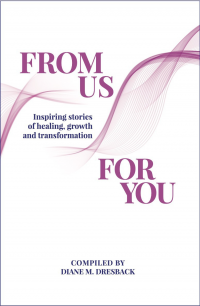 From Us For You: Inspiring Stories of Healing, Growth and Transformation
Genre: Biographies & Memoirs
From Us For You: Inspiring Stories of Healing, Growth and Transformation
Genre: Biographies & Memoirs
